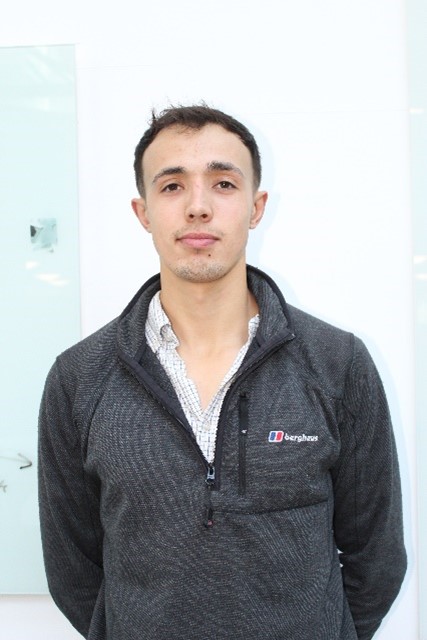Is a PhD for me?
24/09/2021

My friends often ask me why I chose to study a PhD and why particularly resource recovery from wastewater (How I simplify my title ‘Enhancing biomineral production for resource recovery from wastewater using biocatalysts’). Initially, I completed a BSc in Geological Sciences and an MSc in Geochemistry at the Universities of Leeds and St Andrews respectively. Throughout these 4 years I’ve come to find that my best work has come from subjects I’m passionate about, and as I continued to learn and understand more about our planet’s many systems, I’ve become more motivated by environmental protection and remediation to keep the planets chemistry in balance. Between my MSc and starting this PhD I took part in a Voluntary Services Overseas (VSO) International Citizenship Service (ICS) programme to Uganda, where we worked with our Ugandan counterparts to deliver teaching on the sustainable development goals to youth groups (16-30) and facilitate training in vocational and life skills (such as soap making and financial accounting) with the goal to help them achieve resilient livelihoods. This small introduction into some social sciences and learning about sustainable development from a bottom-up approach changed my outlook and drove me towards looking at how physical sciences could work with social sciences. I also worked as a landscape gardener in London for six months which really hit home the luxury green spaces are and how we need to preserve them by developing our infrastructure sustainably and reducing our footprint on the planet.
For me having a strong motivation for the possible impacts of my research is what helps me get through the tough times experienced in many PhDs, where nothing quite seems to work, or progress seems too slow. My passion for environmental protection and sustainable development is my drive to complete this project. Reducing our waste is key to this, which is being done by using less and being more efficient. However, resource recovery is where I think we can make the most impact, finding value in waste products encourages circularity which in any industry is becoming more key for sustainable development and meeting global climate change goals. My project looks to achieve a small part of this by recovering ‘lost’ nutrients from wastewater using biomineralisation to produce sustainable, organic, and efficient fertilisers so that farming today can move closer to a sustainable and circular economy.
What really excites me about my project is how it is pushing the boundaries of ‘Nature-based’ solutions beyond what is publicly known by combining knowledge of biomineralising bacteria and cutting-edge microenvironment engineering to come up with solution to. The possibility that bacteria (some of the smallest organisms on the planet) could be the salvation for ensuring nutrient recovery from wastewater providing an affordable fertiliser alternative and closing the nutrient loop for Humankind is poetic to me.
The improved understanding and implementation of resource recovery techniques has huge potential benefits to developing nations, who are often priced out of the markets of many commodities. For my project I see this as a potential way to provide a sustainable and, importantly, local fertiliser to subsistence farmers in developing nations, improving their yields, and allowing them to send the excess to market providing a much-needed boost to their income. Within developed nations this recovery is key to move away from unsustainable, mined mineral fertilisers whose overuse, and high solubility has led to many of the pollution problems faced in natural water courses.
Categories & Tags:
Leave a comment on this post:
You might also like…
From classroom to cockpit: What’s next after Cranfield
The Air Transport Management MSc isn’t just about learning theory — it’s about preparing for a career in the aviation industry. Adit shares his dream job, insights from classmates, and advice for prospective students. ...
Setting up a shared group folder in a reference manager
Many of our students are now busy working on their group projects. One easy way to share references amongst a group is to set up group folders in a reference manager like Mendeley or Zotero. ...
Company codes – CUSIP, SEDOL, ISIN…. What do they mean and how can you use them in our Library resources?
As you use our many finance resources, you will probably notice unique company identifiers which may be codes or symbols. It is worth spending some time getting to know what these are and which resources ...
Supporting careers in defence through specialist education
As a materials engineer by background, I have always been drawn to fields where technical expertise directly shapes real‑world outcomes. Few sectors exemplify this better than defence. Engineering careers in defence sit at the ...
What being a woman in STEM means to me
STEM is both a way of thinking and a practical toolkit. It sharpens reasoning and equips us to turn ideas into solutions with measurable impact. For me, STEM has never been only about acquiring ...
A woman’s experience in environmental science within defence
When I stepped into the gates of the Defence Academy it was the 30th September 2019. I did not know at the time that this would be the beginning of a long journey as ...






